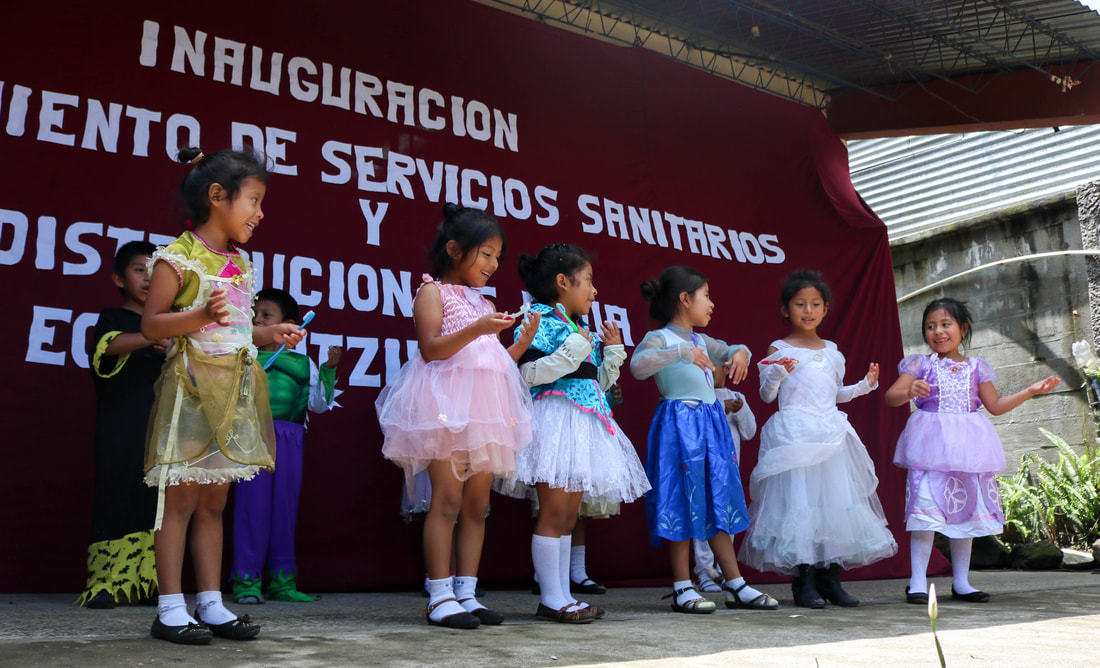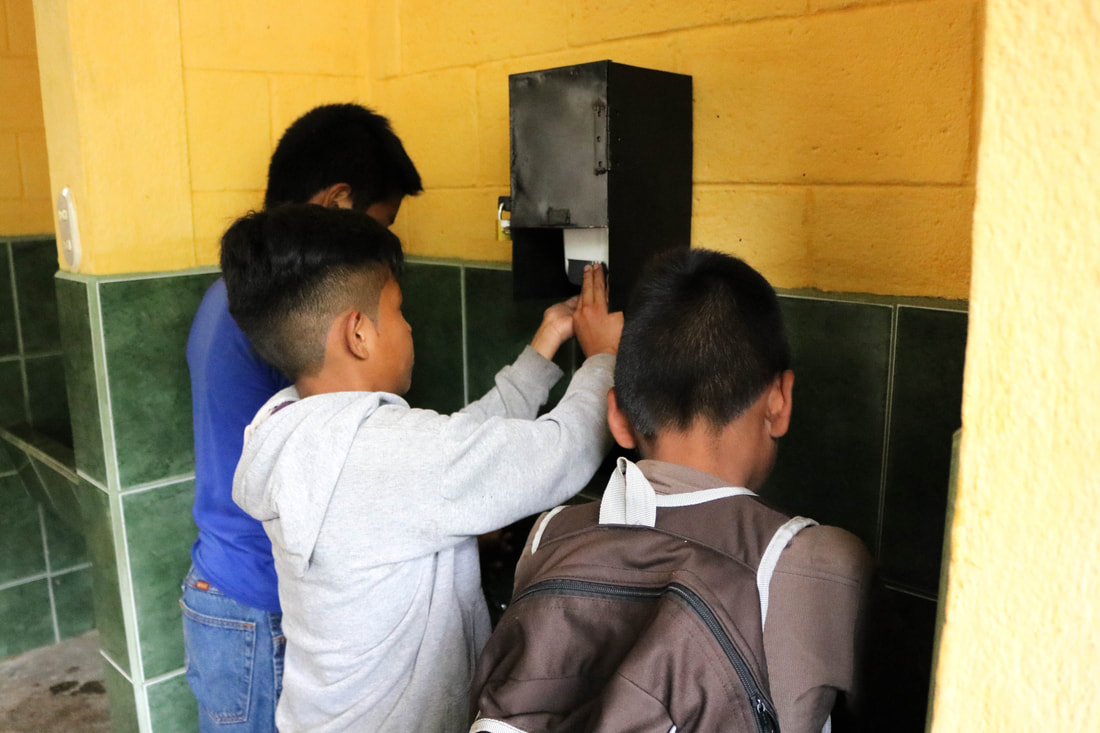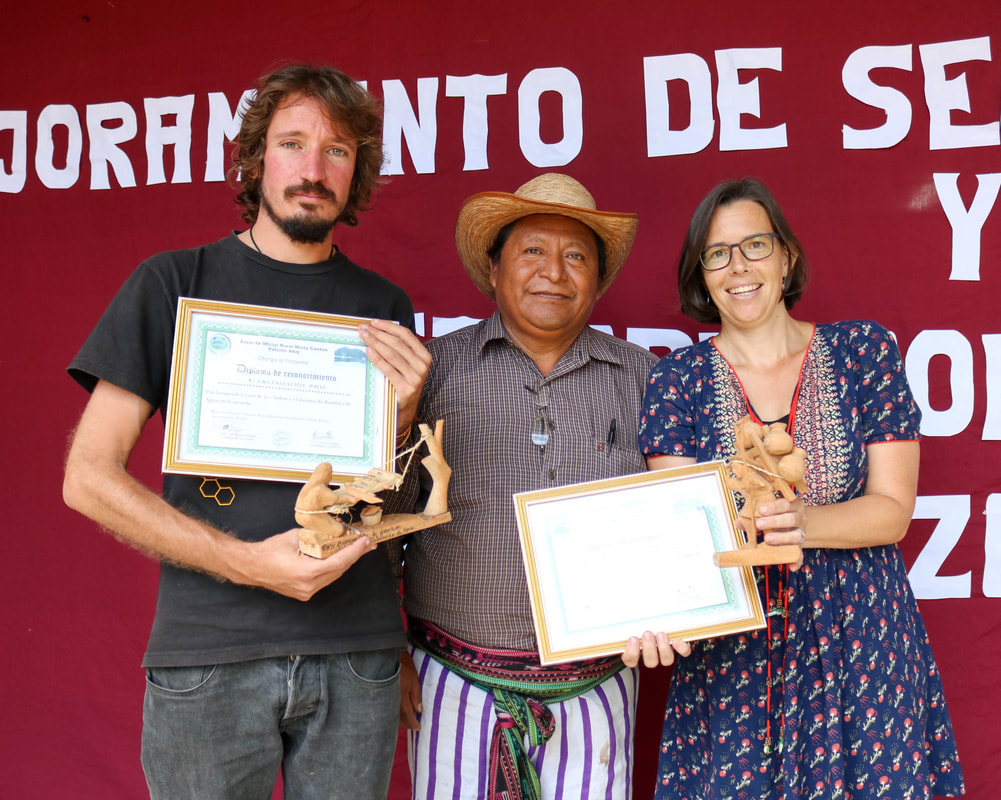|
The students at Patzilin Abaj Primary School sang, danced and celebrated because, for the first time in 15 years, when they pushed the lever on the toilet and twisted the faucet, running water splashed out. Patzilin Abaj Primary School is the ninth school to implement our Water, Sanitation and Hygiene (WASH) in Schools Project. Before this, each student had to carry water from their house to fill up a communal barrel, which was used to flush and wash their hands. Towards the end of the week, when the water supply dropped, flushing and washing hands was limited to only the taller students, who could reach the bottom of the barrel. This method of (sometimes) flushing and washing from the giant barrel of standing water put the students at high risk of getting diarrheal illnesses and as a result, missing school. Implementing our WASH in Schools Project is a lot more than just building and renovating bathroom infrastructure. To create sustainable change, we work with and train the school director, teachers and students and parents on the importance of practicing proper bathroom hygiene and how to take care of the facilities. One of the trainings includes working with teachers to brainstorm ideas on how to incorporate sanitation and hygiene into their curriculum and using the facilities to encourage leadership and responsibility from the students. For example, talking about germs in science class and assigning students to be WASH Ambassadors and monitor that their classmates are washing their hands and that the soap dispenser is not empty. We look forward to working with Patzilin Abaj Primary School to help students develop lifelong habits that will keep them healthy and ready to learn!
4 Comments
At Pueblo a Pueblo, we believe in the power of stories. We believe that imagined adventures, meeting “new” characters and learning how to face adversity in stories are fundamental skills children need for their social and psychological development.
One of the biggest goals when working towards literacy, and one we try to foster with our literacy programs, is to enable comprehension and critical thinking skills necessary to become empowered members of society. Guatemalan writer Julio Serrano Echeverría also believes in the power of stories. He translates ancient Maya oral stories he collects from elders throughout Guatemala. He claims to be the author, but not the writer” because no one is the owner of oral stories. Julio caught our attention through his stories. When choosing books for our libraries, we often search for works that our young readers will be able to identify with. His collection of Maya folktales are stories that children from our beneficiary schools enjoy because they can relate to them. Many of the stories take place in indigenous communities like their own and are similar to the stories their grandparents have told them.Julio’s books are very popular in our lending libraries. Pueblo a Pueblo and Julio teamed up to show the students at the Nueva Providencia Primary beneficiary school, in San Lucas Toliman, how they also have the power to be storytellers and to teach them how to translate their unique experiences into creative narratives. “It’s important to empower kids, to show them they can be in control of their own stories and their own lives, to use their creativity to understand the world around them and to create their dreams for the future,” explained Juan. This is especially important for kids in underserved populations, “which the world has told do not have a significant role in the larger social narrative,” he added. |
Categories
All
Archives
April 2021
|
Pueblo a Pueblo Blog
Right from Santiago Atitlán to your computer. Your window into our world. Thanks for reading and comments are welcome!
|
Guatemala Office
Cantón Tzanjuyú Santiago Atitlán, Sololá (+502) 7721.7449 (Callers in Guatemala) +1 (920) 383-1506 (Callers in the U.S.) U.S. Mailing adress Natik Esperanza 2700 Mayan Drive Fort Lauderdale, FL 33316 |
Pueblo a Pueblo has been awarded GuideStar's 2019 Gold Seal for Transparency, meets the BBB Wise Giving Alliance's Standards for Charity Accountability, and was named a finalist for the National Coffee Association's 2019 Origin Charity of the Year award.
|




 RSS Feed
RSS Feed